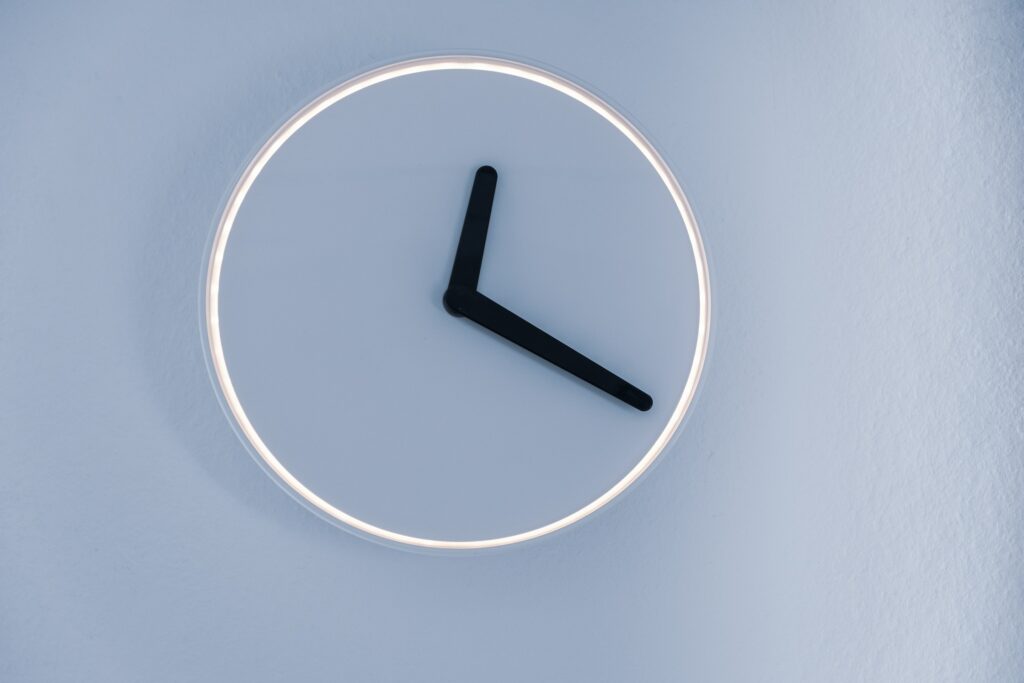A guest article from Michelle Steiner – first published and edited on The Mighty

My math learning disability presents a variety of challenges, but the most difficult one is not being able to read the face of a clock. Many people don’t understand that I can’t do this. I have had generous people gift me with beautiful antique analogue clocks. But I am unable to read what time it is, and other than decoration, they serve little purpose for me.
I struggled with learning how to read a clock in elementary school. I can remember learning to tell time to the hour, but anything beyond that never made sense. I dreaded the worksheets that I had to tell what time it was, but I loved the colourful clock that you could move the handles.
Despite all the efforts and practice, I can still only tell time to the hour. If I know that it’s 12 o’clock, then I can tell where the hands are moving. But if I would read a clock at random, I couldn’t tell you what time it was unless it was on the hour. I use a digital watch or my Fitbit to tell what time it is. I didn’t use a digital watch when I was young, and I never knew what time it was. If I asked someone, they would point to the clock on the wall and say, “There’s a clock over there.” Pointing to the clock did little to tell me what time it was. I could see the clock but couldn’t comprehend it. I also have challenges when people use clock terms to explain things. If someone tells me that it’s a quarter to two or half-past two, it makes little sense to me.
Many people are shocked and surprised when I can’t read an analogue clock. People assume that I never learned in school or that they can “cure” me. I also had a person ask, “Can’t you get tutoring for that?”
Our society is becoming increasingly digital and relying more on digital clocks. Some schools have stopped using them, calling them obsolete. I do think that exposing students to an analogue clock is important. If a student can read an analogue clock, then it gives
them another skill that they can use, and it can also help teach students to count by fives.
However, if a student can’t read an analogue clock, it doesn’t make them lazy or less than. Digital watches and clocks provide an alternative for students who can’t tell time. Whether an analogue clock becomes
obsolete or is still of use remains to be seen. Sundials were once used to measure time and are now nothing more than a lawn decoration.
An analogue clock is one way to measure time, but my brain is unable to read this type of clock. The reason for my challenges with a clock is not visual but instead brain-based. My inability to read a clock is not related to dementia or Alzheimer’s disease, although some people lose the ability to read because of them.
I am very thankful there are other ways to tell what time it is.
My parents had a square clock with roman numbers. This was literally hell for me when my mom was pressuring me into reading the time.
I learned my own way eventually. But I still struggle with roman numbers.
Now I am a kindergarten teacher and I love teaching my kids to read a clock.
And I’m sure my own struggle helped me to be a better teacher as I always try different ways to reach my students and teach them something they struggle with.
This brings back so much to me ..I was having a sort out of old school worksheets and reports when I came across a page filled with clocks, red marks and an some writing which said ‘come and see me after the lesson’.
I still remember to this day being held behind in class in junior school with the said sheet of clock faces all with crosses on and the teacher explaining to me the times they actually said.
I was a bright child and excelled in English, Science and art. But Maths and the fractions and equations filled me with dread ( in fact they still do) . Fast forwards to adulthood and I still struggle with the time .. often late.. or very early and I also struggle to work my break time out properly if I don’t go on a ‘o’clock hour’ or a ‘half past’ time.
This article feel comforting to me in that, maybe this is something beyond just poor time keeping, and that it actually could be related to something I could never have helped.